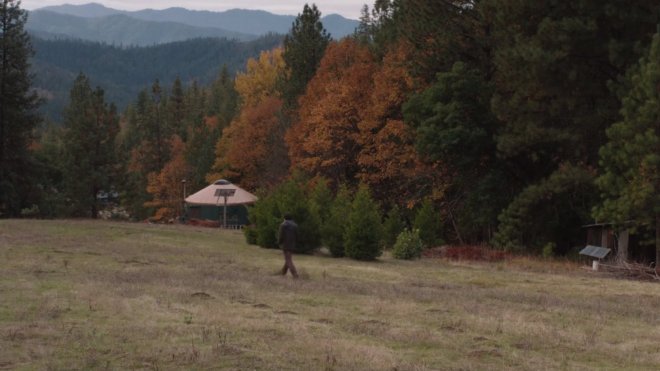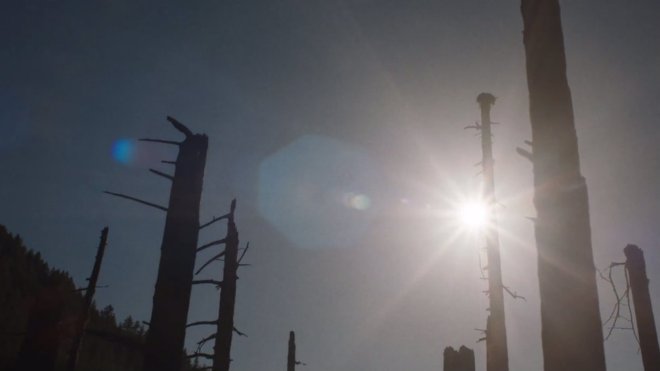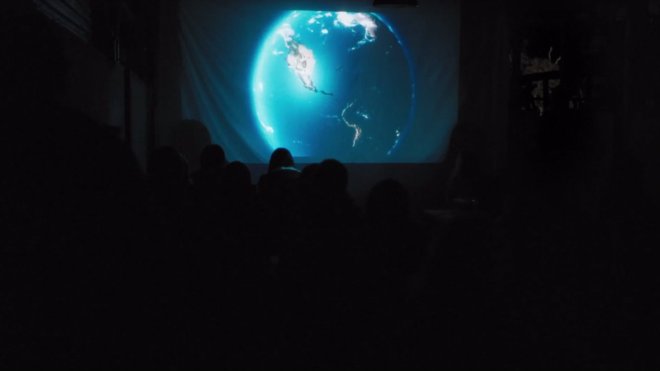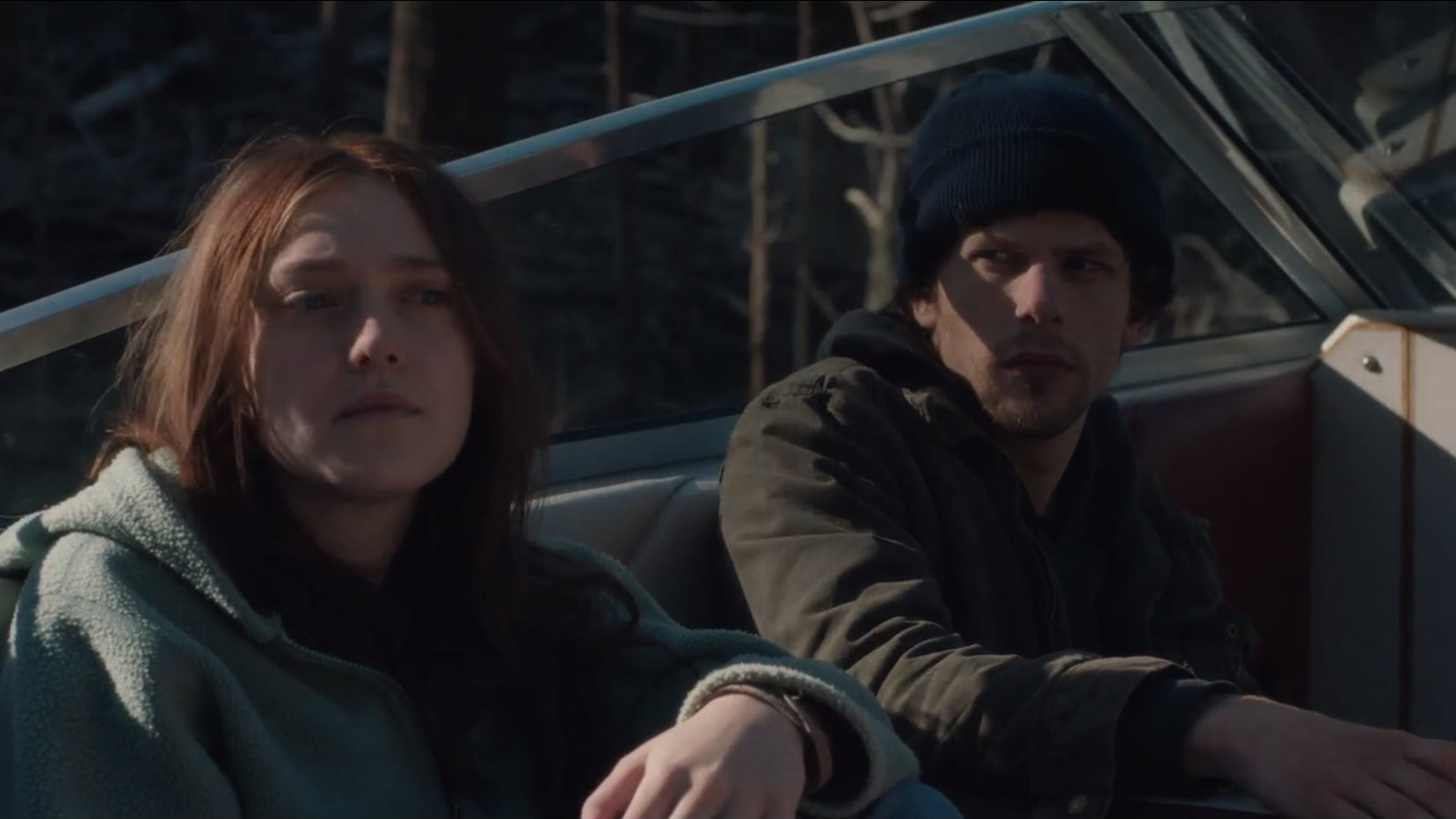Welcome to Green Screen, where Grist writers put on their proverbial cinephile hats to talk about movies, television, video games, and any heretofore undiscovered media on two-dimensional surfaces. This week, Assistant Editor Amelia Urry, Senior Editor Lisa Hymas, and Editorial Fellow Sara Bernard turn their sights on Kelly Reichardt’s new movie, Night Moves, which was released on DVD this week.
The basics: Two young greenies, Josh and Dena, get angsty about the environment and decide to turn eco-saboteur with the help of a shady former Marine, by conspiring to blow up a dam in Oregon — allegedly to save the salmon, since the ocean “will be empty by 2048,” or something. (You can watch the trailer here.)
Why it’s green: When you were a pimpled teenager running your high school’s Sierra Club chapter, you almost certainly never considered that a “save-the-trees” mentality could be a bad thing. If that adolescent naiveté hasn’t been resoundingly crushed already, Night Moves is here to do it for you. Also, there’s no better way to say, “We’re making a movie about outdated environmentalist ideals,” than to set it in the outskirts of good ol’ Eugene, Ore.
Amelia: First of all, fair warning: This is one of those films that people who hate indie films will almost certainly hate — it’s reticent and melancholy, studded with long pauses and nearly expressionless staring contests with the camera by some extremely unheroic heroes. Said heroes, played by Jesse Eisenberg and Dakota Fanning, also happen to be exactly the kind of environmentalists that non-environmentalists will probably hate: withdrawn misanthropes who care more about the fate of hypothetical salmon than any of the flesh-and-blood people around them. (Not to mention the uncategorizeable third conspirator, played by Peter Saarsgard, who helps organize the dam sneak attack while somehow giving off the impression that he doesn’t really know what he’s doing, or doesn’t care.)
Still, it would be wrong to call Night Moves an environmental movie. It is more a darkly drawn psychological thriller, nearly devoid of slogan or rallying cry — to its benefit. If the movie were as earnest about its message as its main characters are, it would actually be unwatchable. [Sara: True, it’d be totally barf-worthy — though could anything have been as barf-worthy as The Secret?] [Lisa: You actually watched The Secret??]

Yes, that’s a yurt.
Sara: I would have liked to have seen a deeper dive into the idea of eco-terrorism as a legitimate crime that — like most crimes — starts with a legitimate motivation. I didn’t get that feeling from these characters at all. It made the “thrill” less thrilling; it was more like, well yeah, those hippies sure did something stupid!
But I did like the effort, and while the long, do-nothing scenes were indeed slow at times, the result ended up being pretty admirably creepy. I also had to appreciate the characters and moments that felt laughably familiar to me, having grown up in northern California: 1) Dakota Fanning’s job at the clothing-optional New Age spa, 2) the grubby 20-somethings working on a family-run CSA farm with all the beanies and flannels and wine drunk from the bottle at campfire strummin’ parties in barns, 3) one of the farm workers trying to read another’s aura, etc.
So while the film covered a topic and a scene that hasn’t been visited much in Hollywood, through the lens of the suspense thriller, in other ways, it fell really, really short of its potential in terms of an actual exploration of environmental issues, eco-activists, and the criminal mind.

Lisa: First of all, Night Moves was a slow, depressing snoozefest. [Amelia: I say tomato, you say snoozefest.] Which isn’t to say it was bad. I guess it was well done for what it is — if you like that kind of brooding, morose indie flick.
One of the most annoying things about this movie (and there are a lot, but you gotta start somewhere) is that it totally misses the zeitgeist of today’s environmental activism. In this century, what drives people out to the streets and even encourages some to risk arrest is climate change and dirty energy. The environmental radicals in this movie don’t make a single mention of climate change. They want to blow up a dam because it hurts salmon. What is this, 1975? That’s when the idea of blowing up a dam was fresh, when Edward Abbey wrote his classic novel The Monkey Wrench Gang.
Nowadays, if this movie wanted to be realistic, it would have radicals who want to blow up a fracking site or a tar-sands pipeline. Instead, our trio is fixated on salmon, with Dena delivering a preachy speech about marine biodiversity at one point. It feels like a movie about the environmental movement made by people who don’t know anything about the environmental movement.
One scene that struck me as particularly out of touch had our eco-saboteur trio in a boat going through a forest that had been drowned by a dam, with dead trees sticking out of the water. It’s a haunting, lovely scene, really. But it would be so much more au courant to have them floating through a drowned city after a Katrina- or Sandy-like storm.

Sara: Most groan-worthy moment: That one line from Jesse Eisenberg’s character that gives us the film’s only articulated motivation for the crime: They’ve got to blow up the dam because it’s “killing all the salmon so people can power their iPods every second.” It feels forced, like a token offering to the criminal-motivation gods, and further underscores the idea that environmentalists are clueless sociopaths. And, c’mon, iPods? Please. That’s so 2006.
Lisa: Best moment: When the film finally ended. Not that the ending was satisfying. Just that I could then stop watching it.

Just consider yourself lucky that you didn’t watch THIS hypothetical angsty documentary instead.
Lisa: Well, OK, I agree with Sara and Amelia that the film does capture some (tragically) realistic eco-culture — there is one scene where an earnest group is watching an earnest documentary about environmental catastrophe and then asking the director earnest questions — too real! I’ve been at many such events. Also, I think Josh’s naiveté is realistic, when he says that he thinks blowing up a dam will force people to start thinking about their wonton, wasteful ways. Yeah, good luck with that, kid.
Amelia: I think the green-inclined can still eke some useful lessons from this film — namely, don’t be a jerk and have concrete goals! Armed with a deathly serious commitment to a dangerously vague mission, these would-be activists serve as a cautionary tale of what happens when people fail to think of their actions as having real consequences.
“So … what do we do?” one character asks pointedly at that film-within-a-film screening, effectively summing up these enviros’ meta-dilemma in one fell, inarticulate swoop. Asking the question is a good first step, but if this movie had any coherent lesson — other than beware of saunas and brooding asocial farmers — it is that it can be dangerously easy to mistake doing something, anything, for doing the right thing.



